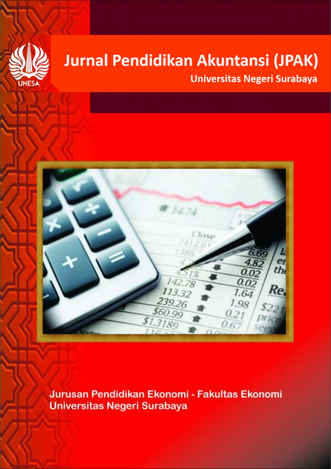Pengembangan Bahan Ajar Elektronik Mata Pelajaran Praktikum Akuntansi Lembaga/ Instansi Pemerintah Kelas XI SMK Berbasis Kontekstual
DOI:
https://doi.org/10.26740/jpak.v9n2.p220-231Keywords:
Contextual; electronic teaching materials; institutional accounting practicumsAbstract
The use of teaching materials has an important influence in achieving learning objectives. Teaching materials for learning must be appropriate and as needed. This research aims to produce contextual-based electronic teaching materials product, analyze the feasibility of contextual-based electronic teaching materials, and analyze students' responses to contextual-based electronic teaching materials. The 4D model by Thiagarajan, Semmel, and Semmel was used in the development process. The stages consist of define, design, and up to the development, because the disseminate stage is not carried out. The research subjects were material, linguistic, graphic expexrt, and students of class XI competency in accounting at SMKN 1 Surabaya. The types of data uses quantitative and qualitative data. Data analysis was carried out by quantitative and qualitative analysis. The results of the research from expert validation meet very feasible criteria based on the average feasibility of material, language, and graphics. The results after the product trial obtained that students responses met very understandable criteria.
Downloads
Downloads
Published
How to Cite
Issue
Section
License
Authors who publish with this journal agree to the following terms:
- Authors retain copyright and grant the journal right of first publication with the work simultaneously licensed under a Creative Commons Attribution License that allows others to share the work with an acknowledgement of the work's authorship and initial publication in this journal.
- Authors are able to enter into separate, additional contractual arrangements for the non-exclusive distribution of the journal's published version of the work (e.g., post it to an institutional repository or publish it in a book), with an acknowledgement of its initial publication in this journal.
- Authors are permitted and encouraged to post their work online (e.g., in institutional repositories or on their website) prior to and during the submission process, as it can lead to productive exchanges, as well as earlier and greater citation of published work (See The Effect of Open Access).

Jurnal Pendidikan Akuntansi (JPAK) is licensed under a Creative Commons Attribution-NonCommercial 4.0 International License.
 Abstract views: 1145
,
Abstract views: 1145
, PDF Downloads: 635
PDF Downloads: 635



